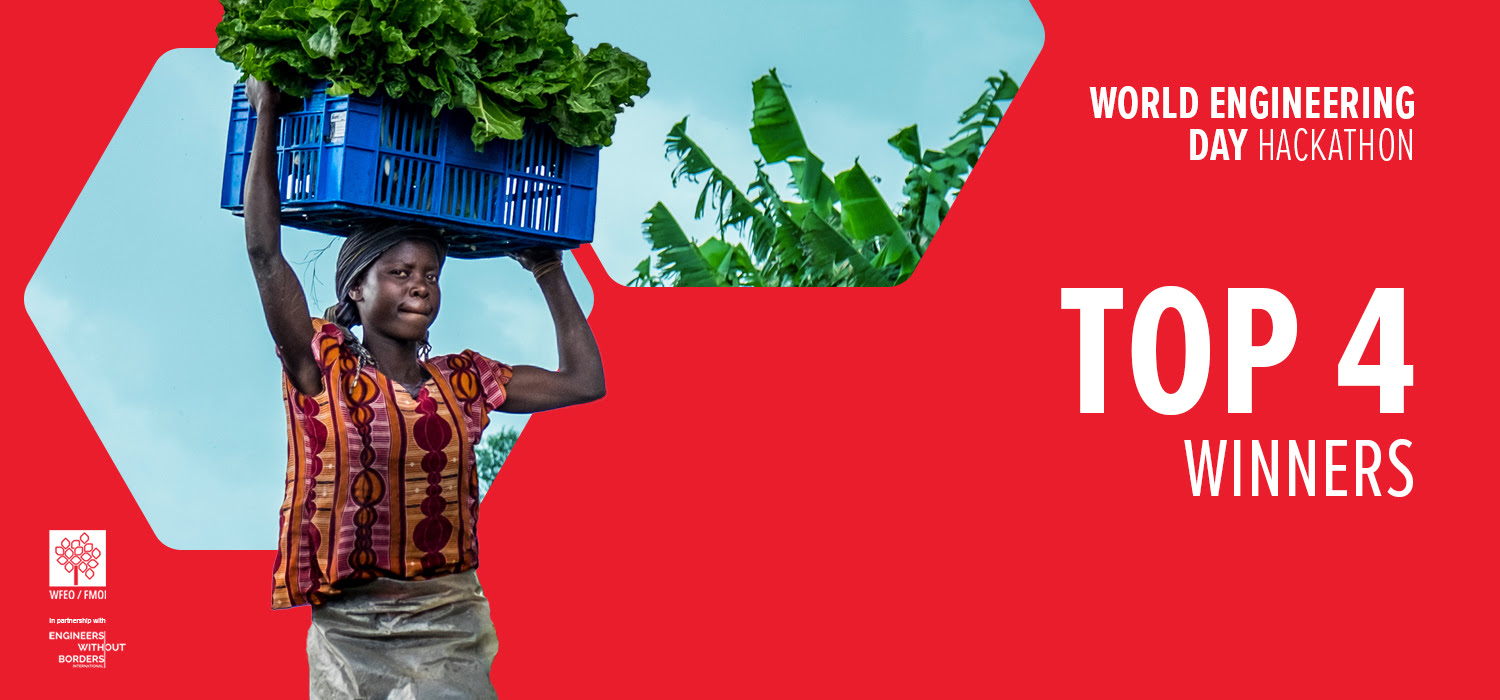Meet the champions of this year’s Hackathon! Our judges have selected the top three winners, while the public vote crowned a fan-favorite.
With over 3,000 participants from 90+ countries, the competition showcased bold solutions to poverty, from climate-smart innovations to digital empowerment. Join us as we celebrate their achievements and hear from our winners, judges, and partners.
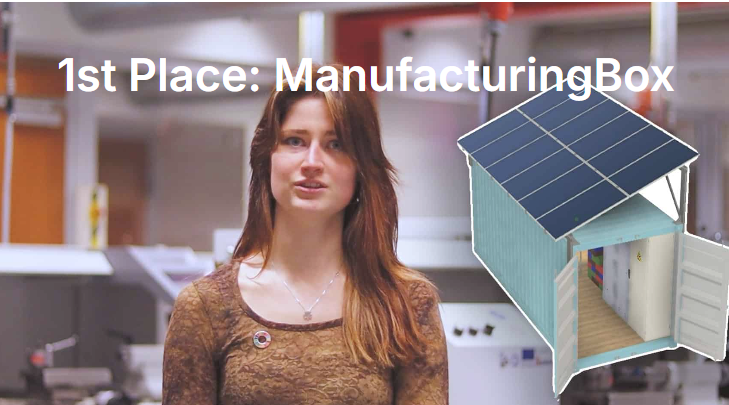
ManufacturingBox: Micro-Factories for Local Development / Challenge 2 – Netherlands This team from the University of Twente in the Netherlands, have designed the ManufacturingBox: a self-sustaining micro-factory that transforms plastic waste into building materials. It creates jobs, stimulates economic growth, and addresses infrastructure needs in underserved communities. |
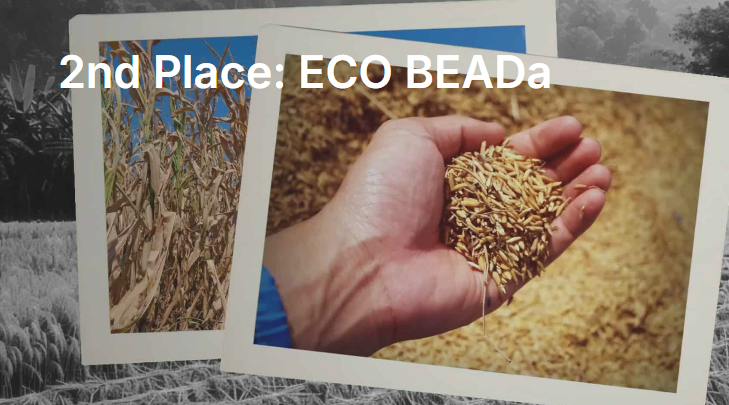
ECO BEADa: Phosphate Runoff Reduction & Food Security / Challenge 1 – Philippines Hailing from Batangas State University in the Philippines, Team ECO BEADa are tackling phosphate runoff and wastewater contamination in farming communities. By employing innovative solutions and partnering with local farmers, it improves soil health, enhances food security, and fosters long-term community well-being. |
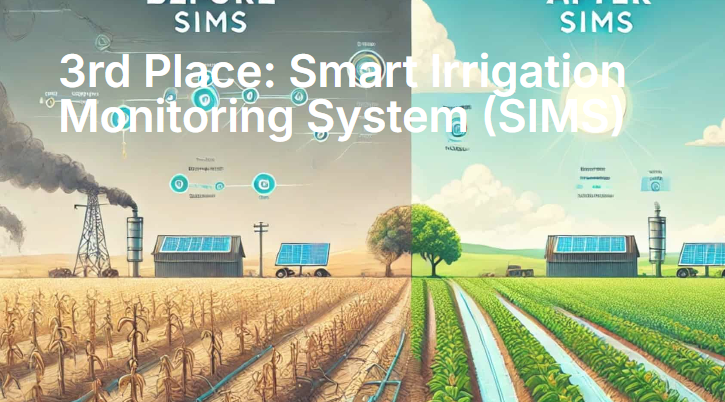
SIMS: Solar-Powered Irrigation & AI for Small Farmers / Challenge 1 – Singapore Team Torpedo are from the University of Hertfordshire/PSB Academy in Singapore. Their Smart Irrigation Monitoring System (SIMS) combines solar power, AI, and precise irrigation to help small-scale farmers cope with climate challenges. The system also helps increase crop yields and secure more reliable livelihoods. |
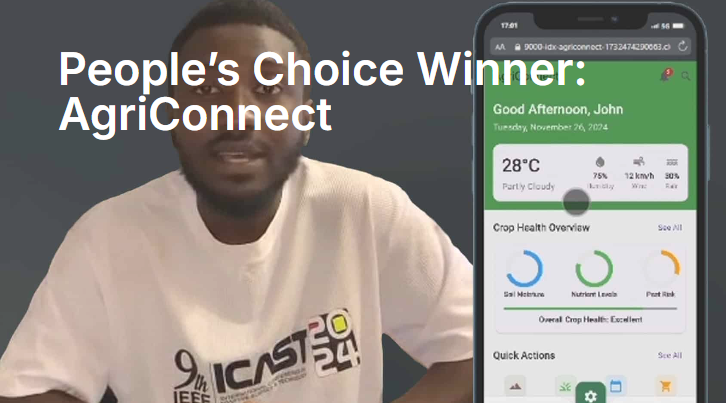
People’s Choice Winner: AgriConnect – Ghana / France AgriConnect is a digital platform designed for small-scale farmers: empowering them to boost productivity with precision farming tools, a seed exchange marketplace, and financial connections. By fostering collaboration, biodiversity, and climate resilience, it ensures sustainable food production and healthier rural economies. Beyond a mobile app, AgriConnect also offers an SMS information service for farmers in rural regions with poor internet access. |
View other finalists
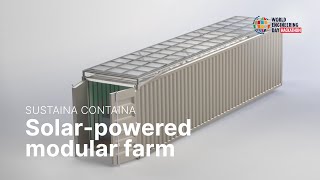
Sustaina Containa: Solar-Powered Modular Farming / Challenge 1 – Canada A team from University of British Columbia Okanagan have designed the Sustaina Containa: a solar-powered, modular farm-in-a-container that ensures food and water security. Harvesting 16 gallons of water a day, the solution offers clean drinking water, irrigates crops, and maintains ideal crop conditions. |
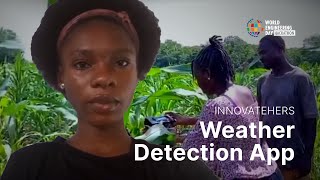
InnovateHers: Weather-Aware Farming Device / Challenge 1 – Ghana This team from Ghana’s University of Mines and Technology hope to support farmers with a device that accurately detects weather conditions. By reducing guesswork and improving planning, it helps avoid costly mistakes and strengthens the resilience of farming communities against climate volatility. |

AR Home Builder: Augmented Reality Solutions for Informal Housing / Challenge 2 – Canada A team from York University, Canada have built an AR Home Builder app that improves informal housing by guiding construction with augmented reality. Reducing errors and increasing efficiency, it creates safer, more durable homes that uplift communities. |
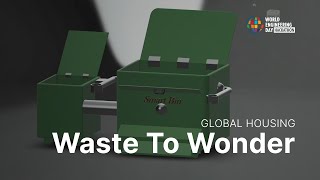
Waste To Wonder: Waste Management for Better Lives / Challenge 2 – Australia/UAE/Kenya Global Housing are a multi-national team consisting of students from Australia’s University of New South Wales, the UAE’s American University of Sharjah, and the Dedan Kimathi University of Technology in Kenya. They hope to improve informal settlements by focusing on waste management. Transforming waste into building materials, it fosters improved livelihoods, sustainable housing, and healthier communities. |

Building the Future: The Power of Cellular Lightweight Concrete / Challenge 2 – Pakistan Team-Hustlers are a combined university team, with members from the National University of Sciences and Technology (NUST) in Islamabad, and the Abdul Wali Khan University in Mardan. They hope to revolutionize urban housing through the use of Cellular Lightweight Concrete. By creating affordable, efficient, and resilient housing in rapidly urbanizing areas, their solution aims to lower costs and reduce environmental impact, all while strengthening communities. |
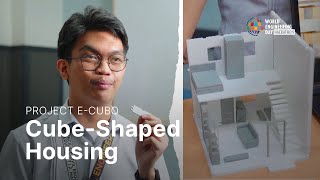
Project E-Cubo: Cube-Shaped, Low-Cost Filipino Homes / Challenge 2 – Philippines This team from Manilla’s Technological Institute of the Philippines hope to transform informal settlements with Project E-Cubo. Inspired by the traditional Bahay-Kubo, their solution uses interlocking EQ Blocks to create sturdy, affordable homes. This approach uplifts informal settlements with modernized, eco-friendly designs suited to local conditions. |
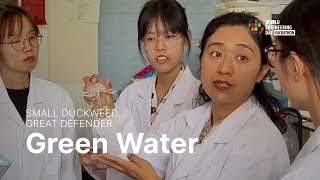
Green Water: Duckweed Bioremediation for Freshwater Safety / Challenge 1 – China Small Duckweed, Great Defender are a team of students from Tianjin Normal University, in China. They are tackling the issue of cadmium pollution: a heavy metal that can devastate freshwater supplies, endangering water rights and food safety. Their solution, Green Water, applies duckweed-based bioremediation to remove cadmium and restore polluted freshwater. Using genetic enhancements, it offers a sustainable, nature-inspired way to protect water resources and food safety. |

Empower: Digital Tools for Women’s Social Change / Challenge 3 – Singapore Created at the National University of Singapore, Empower helps women in underprivileged areas access digital resources. Through education, mentorship, and skill-building, it drives personal transformation and global impact. |

Clima Haven: Affordable, Disaster-Ready Housing / Challenge – Myanmar The CH Minions are a team from STI Myanmar University who have developed Clima Haven: an affordable, climate-resilient home. By connecting the homes to weather monitoring and warning systems, their solution offers a cost-effective way of protecting people in informal housing from natural disasters. |

PROJECT SHORE THING: Coastal Modules for Subsistence Farmers / Challenge 2 – Philippines Team ASINderos are from Batangas State University in the Philippines. Focused on coastal farming, they have created a multipurpose module for aquaculture and agriculture. The solution combats climate impacts, like flooding and salinity, stabilises crop production, and builds community resilience. |

Antimicrobial Peptide Bioreactor: Sustainable Shrimp Farming / Challenge – China The EcoShrimp Innovators are a team from Tianjin Normal University in China, who hope to enhance shrimp farming sustainability by using antimicrobial peptides. Their solution bolsters shrimp health, reduces disease, and supports climate resilience in subsistence-level aquaculture. |
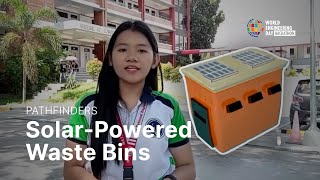
Pathfinders: Solar Waste Bins & Urban Innovations / Challenge 1 – Philippines This team from Batangas State University in the Philippines are addressing informal housing challenges through Pathfinders: a solar-powered bin. By enhancing sanitation and reducing poverty, these innovations foster cleaner, healthier, and more sustainable neighbourhoods. |
For more information:
2025 Hackathon in the World Engineering Day website
The 2025 Hackathon Challenge 3 – Empowering women to overcome poverty through digital technologies
The World Engineering Day website
The World Engineering Day main event webpage
FEB
2025

